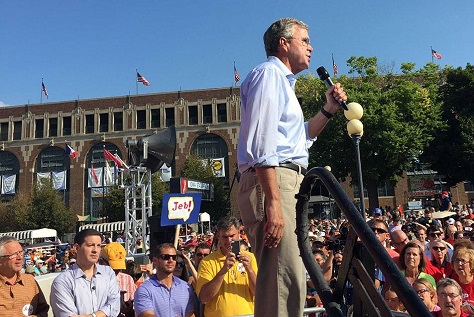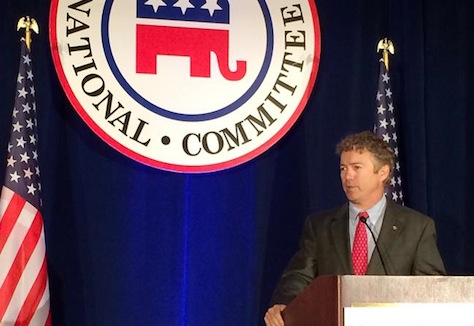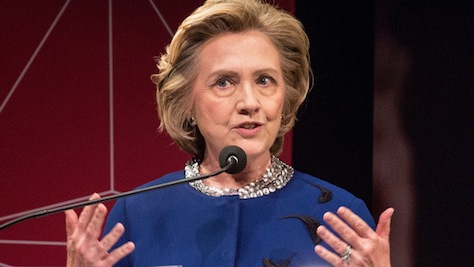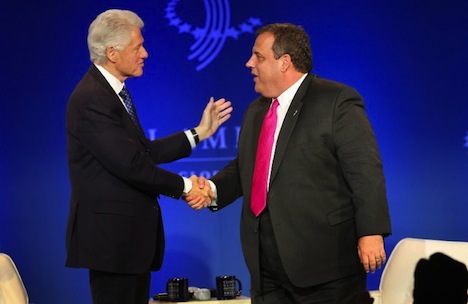Last week, two of the leading contenders for the Republican presidential nomination delivered Major and Very Serious Foreign Policy Addresses designed to establish their credibility on international affairs. ![]()
Former Florida governor Jeb Bush, who delivered an address last Tuesday at the Ronald Reagan Presidential Library in California, and Florida senator Marco Rubio delivered an address to the Foreign Policy Initiative in New York. Bush and Rubio alike delivered plenty of bromides about projecting U.S. strength and toughness against the enemies of the United States, with plenty of withering attacks on the foreign policy of the Obama administration, including the likely Democratic presidential nominee, former secretary of state Hillary Clinton. But critics on both the right and the left panned the speeches as the same old neoconservative sauce poured back into a barely disguised new bottle.
From Slate‘s Fred Kaplan on the Bush speech:
His 40-minute speech, at the Ronald Reagan Presidential Library, was a hodgepodge of revisionist history, shallow analysis, and vague prescriptions.
From The American Conservative‘s Daniel Larison on Rubio:
Once again, Rubio fails to understand the limits of applying pressure to another state…. Rubio boasts about wanting to usher in a “new American century,” and these are the bankrupt, discredited policies he wants to use create it.
From Vox‘s Zack Beauchamp:
Jeb Bush didn’t mention his brother, George W. Bush, Tuesday night in his foreign policy speech. But he might as well have…. Jeb’s speech is a reboot of his brother’s neoconservative view of the world, albeit in a somewhat stripped-down form. He thinks American military power “won” the war in Iraq. The lesson we should learn, Bush suggests, is that a bigger US military commitment to the Middle East is the best way to solve its biggest problems.
Ultimately, these haughty foreign policy speeches have little to do with establishing a foreign policy vision. They’ve become part of the traditional bunting of a modern presidential campaign — like flag pins and campaign rallies and the increasingly customary mid-summer overseas trip in general election years (à la Barack Obama in 2008 or Mitt Romney in 2012) that, at best, amounts to a weeklong photo-op and pedantically positive news coverage. In a primary election, grand foreign policy addresses are one part presidential playacting and one part rallying the base.
* * * * *
RELATED: What would Jeb Bush’s foreign policy look like?
* * * * *
For all the posturing, these speeches will all be long outdated by the time either Bush or Rubio hopes to take office in January 2017. Despite bluster on Cuba and Iran, it will be nearly impossible for any presidential administration, Democratic or Republican, to roll back US-Cuban normalization or to shred an international agreement on Iran’s nuclear energy program agreed among European, Chinese and Russian leaders, notwithstanding Rubio’s promise last week to do precisely that.
That’s assuming Cuba and Iran will even be foreign policy priorities in a year and a half.
Continue reading Why you shouldn’t take Bush/Rubio foreign policy speeches seriously




